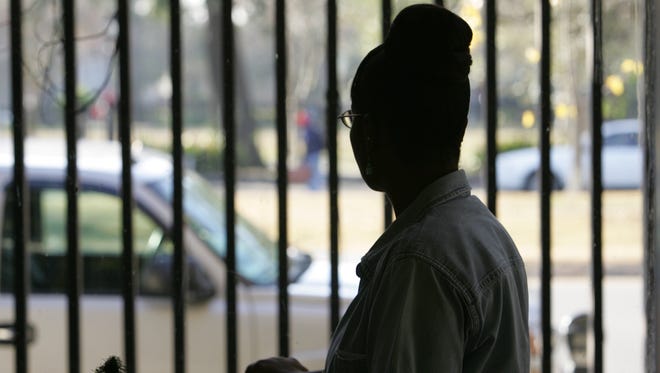Committing a mentally ill adult is complex

- Each state writes its own civil commitment laws
- Some say states need to update those laws
- Advocates urge change for early intervention
To rebuild the country's mental health system, states need to update laws that allow mentally ill patients to be hospitalized against their will, many advocates say.
Today, state civil commitment laws can make it difficult or impossible to hospitalize adults involuntarily, even when their families or caregivers feel threatened and patients appear extremely sick, says Dewey Cornell, director of the Virginia Youth Violence Project.
States have crafted their civil commitment laws to protect civil liberties, in reaction to abusive situations in the past, says Liza Gold, a forensic psychiatrist at the Georgetown University School of Medicine in Washington.
"In the past, you could just go to a magistrate and say, 'My wife is crazy, you need to put her away,'" Gold says. "People could be held involuntarily for extended lengths of time, even without receiving treatment, just because they were perceived as 'crazy.'"
Now, Gold says, the pendulum has swung "too far," because the law doesn't allow patients to be protected from themselves.

"Our civil commitment laws are broken," Cornell says. "They are designed to protect individuals from being held against their will. But they have gone too far. They no longer protect society. We've had many cases where people who should have been hospitalized have been allowed to languish and they deteriorate into a violent act."
Although each state writes its own laws, they all set very high criteria, says Gold.
"All states generally require (someone) provide clear and convincing evidence that someone is imminently dangerous to themselves or others," Gold says. And "imminent" is typically interpreted to mean the past 24 to 72 hours.
So under certain circumstances, a person who threatens to stab his mother often may not be committed against his will, even if he has stabbed her in the past, Gold says, if the most recent threats occurred more than a few days ago. "You can't commit them. You can't get them into treatment. You can't even hold them for observation; it's considered a violation of their civil liberty."
Like many other parents, Heather Tillmann of Milwaukee says she was often told her child wasn't sick or violent enough to qualify for services. At one point, a court official told her, "We can't take a serial killer to jail before they kill."
Those policies need to change, says Ron Manderscheid, executive director of the National Association of County Behavioral Health and Developmental Disability Directors. The country desperately needs to focus on prevention and early intervention, he says.
"If someone has cancer, they shouldn't have to wait until they have acute cancer and be dying in the next two weeks before we give them care," Manderscheid says. "But that's how we operate the mental health system."
If a patient actually hurts someone, most states allow him to be involuntarily detained in a psychiatric facility before a commitment hearing is held. However, even when patients are involuntarily committed, the average length of hospitalization is five to seven days, Gold says.
In some cases, a court may order a mentally ill patient to attend treatment. But there is seldom any enforcement of those requirements. "What's going to happen if he doesn't go?" Gold asks. "If he misses an appointment, the police could arrest him." But that seldom happens, she says.
Most people with mental illness are not violent, and are more likely to be preyed upon by others than to hurt anyone, Cornell notes. Many are at high risk of suicide.
"I get calls regularly from family members who say, 'What can we do to help our son, or our brother, because we fear something terrible is going to happen,'" Gold says. She notes that while parents can influence a child's health care, parents can no longer commit them to a hospital once they turn 18.
"Mental health laws need to be revisited on a state-by-state basis in a way that considers both civil liberties and the value of human life," Gold says.
Even patients who want to go to a hospital voluntarily often wait months for a free bed. "The professionals are there, we know what to do, but our hands are tied, right and left," Gold says. "The more we try to do, the less the law allows us to do, and there is no money to do it."
Leisl Stoufer of California, whose 15-year-old son has tried to strangle her, says she dreads the day he turns 18. Then, no one will be able to compel him to take his medications or remain hospitalized, she says.
Stoufer says her son is a "loving, compassionate, caring kid" at heart who "loves God" and "loves to have me pray for him at night." But she says her son is not in control of his disease. When bouts of anger overtake him, he even looks different, with a wild look in his eye. He has "hit me, threatened me and eventually tried to strangle" me.
Doctors won't even be able to share his medical records with her, says Stoufer.
"I don't want to be the mother whose beloved child's face comes across the TV screen having committed such heinous acts as the ones we have seen so recently," Stoufer says. "I am scared."